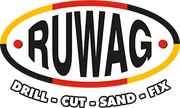Can You Use a Hole Saw With a Hammer Drill?
Whether you’re new to DIY or you have some experience in handling tools, you will find yourself needing a hole saw at some point. With their circular design featuring sharp jagged teeth, these bits offer a fast and effective way to make large, smooth, clean holes in materials. While they’re most commonly used in woodworking, these tools can be used to make holes in other materials, too. Very tough materials such as masonry, on the other hand, are too tough for these bits, making it extremely difficult to use them to make holes in concrete or brick.
With this in mind, you will find that hole saws are typically used in drills that can deliver results without the risk of broken drill bits or tools. Understanding which type of drill to use when working with hole bits is essential. In this guide, we’ll share some tips on the two main types of drill, to give you a better idea of which is best to use with hole bits.
Can Hole Saws Be Used With Any Drill?
Which drills can you use with hole saws and what else should you know? Let’s take a look at some of the main things to consider.
Hammer Drills
Hammer drills are tools that are designed to drill into tough materials such as concrete, stone and brick. They have a specialised function that combines rotation with a rapid hammering action. This enables them to drill into the material, chipping and breaking through as you drill. When working on heavy-duty projects, these tools are the most effective as they have maximum power. Drill bits used in these drills are made specifically for masonry or other tough materials.
Rotary Drills
Rotary drills, on the other hand, are versatile tools that use a basic rotational action to drill holes into materials. These drills are used by all levels of DIY enthusiasts as well as craftsmen. They can be used to drill a wide range of materials, including wood, metal, glass, plastics, and softer masonry. Unlike hammer drills, these drills are designed to drill holes into material, rather than breaking material. They do not have a hammer function and instead work smoothly to allow you to make holes that are smooth and clean.
Which is Best for Hole Saws?
When using hole saws, rotary drills are typically the best choice. This is due to their constant rotation, which ensures a smooth cut as you work. If you are working with plaster or wood, you need a drill that can make holes easily. As hammer drills use a lot more force, they lack the ability to make smooth holes. Instead, they break material and cause damage to the bits. This can also pose a safety hazard, especially if you are trying to control a heavy-action power tool to do lighter drilling work. If you turn the hammer function off, you may be able to use it with this bit in theory. In reality, it will still be difficult to get the results that you would with a standard rotary cordless drill.
The best way to determine which drill to use with any type of bit is to consider the project you are working on, which will make it easier to determine whether you need perfectly round, smooth holes or large holes that don’t have to be clean or precise. Technically, you could turn off the hammer function and use a hammer drill if you are not worried about how accurate the hole will be once it’s drilled. Ideally, it would be far more effective to use a larger masonry bit instead if you want to drill brick or concrete. Using the wrong bit can cause many problems, to your bit, and your tool.
Looking for premium drill bits to suit your project needs? At Ruwag, we offer a selection of hole saws in a variety of sizes, giving you the best results, every time.

